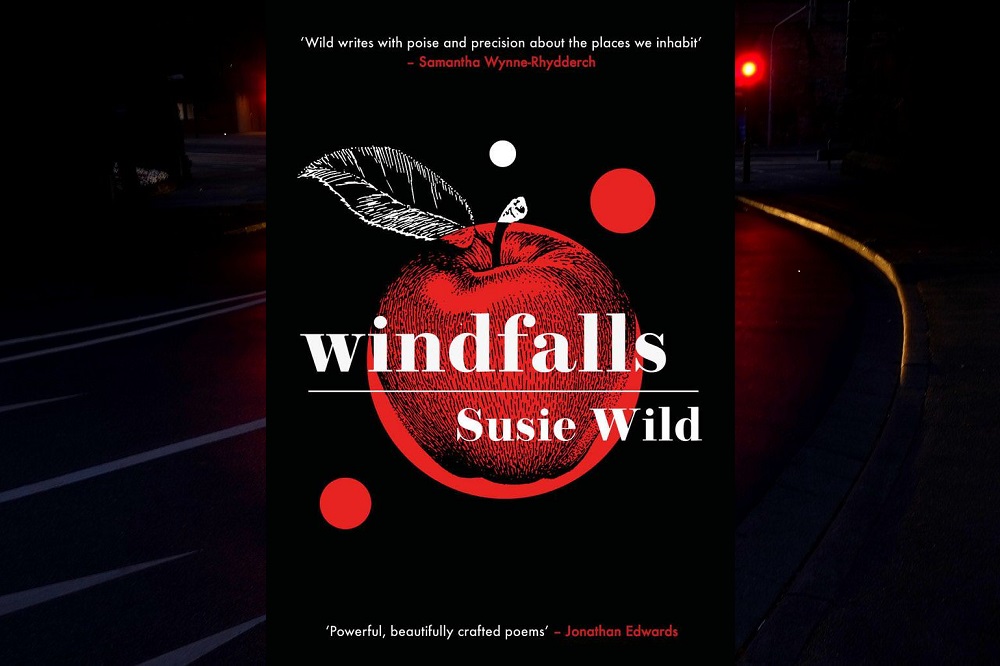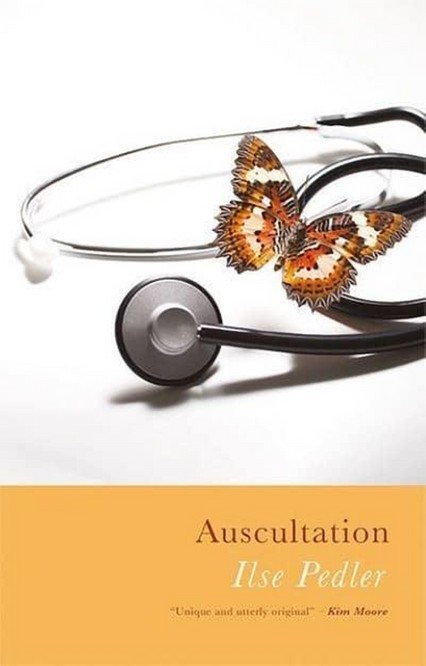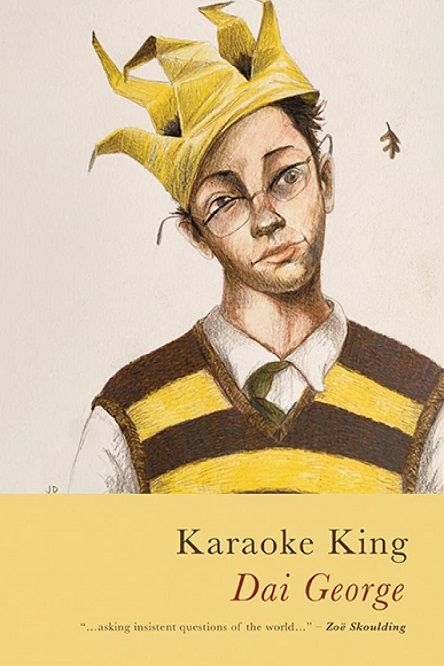Poetry roundup: Caroline Bracken reviews collections from three outstanding Welsh poets

Caroline Bracken
Windfalls is Susie Wild’s second collection with Parthian who are doing great things for literature in Wales and beyond. It follows her debut Better Houses and is beautifully presented with a striking cover design by Emily Courdelle.
The word ‘windfall’ reminds me of Seamus Heaney’s poem ‘A Kite for Aibhín’ which ends or lands on that magical word. While they are very different poets, Susie Wild has something of Heaney’s lyric sensibility, an ability to capture a moment others might pass by including ‘In this battle, there won’t be many hugs’ where she describes the feeling of fear felt by a woman alone at night in an unlicenced taxi, ‘The night my driver’s door opens/ at the traffic-jam-junction, the stalled/ red lights. The click as the door in front unlocks.’ The poem ‘Traumatic Language’ is a fine example of form matching content in its fragmented, unpunctuated, stream of consciousness style, one of the more experimental in the collection.
Endings can be an area of difficulty for poets, trusting the poem to say what needs to be said and trusting the reader to understand what the poem is saying. For the most part Wild achieves this balance admirably, the ending of ‘The Carnivore Boyfriends’ is outstanding ‘He’d rather kiss my flesh than fork/ steak. I dig for cutlery hidden in socks./ I check his hands for knives.’ Occasionally the poems endings are pushed beyond what’s needed into over-explaining such as in ‘Newly Single’ and ‘The Swallows and the Swimming.’
Unsentimental
The love poems in the second section of the book are some of the strongest, gorgeous, unsentimental portraits, ‘He was a cupped hand/ to the cigarettes she’d quit// but taken up again’ (‘Everyone Got Married’) and from ‘The Key Worker’s Wife’:
‘We sit together in this half light,
recount our hours apart, mine uneventful
by comparison: Netflix vs. knife fight, bubble bath
vs. raving Sheela na gig, silence vs. sirens.’
Pandemic poems are a new popular phenomenon but I challenge anyone to write a better one than Susie Wild’s ‘How quickly we forget to live.’
You can purchase windfalls here.

Auscultation is Ilse Pedler’s first full collection, many of the poems inspired by her work as a vet including ‘Miss Freak’s Whelping Forceps’ first published in Butcher’s Dog. It is a fine example of these unsentimental, accomplished poems:
‘How they laboured, these men
with their unforgiving fists of metal
but in the feral hours where instinct loosens
itself from shadows, it’s Miss Freaks we reach for
to coax the unborn to crown the light.’
The detached tone of these poems is perfectly in line with the detachment necessary for the vet’s tasks:
‘Tools to clamp and grasp, to retract
muscle until you see the white strain
of fibres, to probe and dilate,
to ratchet back bone, exposing cavities,’ (‘Surgical Instruments’)
As the title of the collection implies, these poems are all about listening and being listened to but Pedler also has a fine ear for language, its musicality and cadences. This is showcased in the pantoum ‘Behind City Doors’ and the sestina ‘The Importance of Air’. This poet knows her craft and is at her best when she experiments with form such as in ‘The silence is’, ‘Auscultation’, ‘Voicemail’ which make use of white space and allow the poems’ content to be reflected in form:
Tick tock non stop
footstep raindrop
roof top drum beat (‘Auscultation’)
Other poems in this ambitious collection address themes of family,
‘I come from a place where children were seen and not heard,
where mantelpiece clocks chimed the quarter hours
and lavender bags hung like seed pods in wardrobes’ (‘Unmade’)
The repetition of ‘I come from a place’ at the start of each stanza and the sentiment of the poem is reminiscent of Kim Moore’s ‘My People’, Langston Hughes’ poem of the same name, ‘I Come From’ by Dean Atta, and ‘For My People’ by Margaret Walker. In his new, second collection Karaoke King, Dai George has a similar poem ‘Soon Forward’ but he changes the refrain to ‘My family friends’.
‘My family friends were orators and preachers’ sons. Pit electricians, barristers, architects and clowns.’
Auscultation is published by Seren and can be purchased here.

Karaoke King, is everything a second collection should be, surefooted, expansive and hugely entertaining. His voice is completely his own and this book deserves all the prizes it will surely be nominated for. This voice grabs the reader from the first poem ‘Doxology’
‘Blessings flow, but trouble finds me
in the impasse after rain. I mean democratic
as an argument that neither side can win’
to the last, ‘Pink Cones’
‘A leg that fell asleep, hooked under me
on the lawn, buckles as it wakes, becoming
mine again. The songs will be unbanished
in your throat, riddling clouds of midges
make their answer known.’
It is this attention to and manipulation of language that raises the poems to such a high level. Each poem is a world of its own, often worlds we recognise, the deli counter, the park. There is a varied tone in the poems, ranging from the vernacular ‘Who the hell even surfs anymore,’ (Dustin Hoffman in Biarritz) to the formal ‘This is visitation from the lost land close behind,/ the space vacated every time I take my step.’ (Near Historical Swoon) to the prayerful ‘oh let me have been born to this – forever – the visiting hour extending – as I pace the building reading certain signs – anonymous and queasy – let me count on every kindness – sidestep empty trolleys’ (Wards).
George is a master of endings ‘the river’s saying next’ (Ubi Caritas) and beginnings ‘The manhole on 53rd snorts a bower of steam’ (New York Morning, Six Years On). He is not afraid to let the reader in for example in ‘Agoraphobia’ yet doesn’t take himself too seriously ‘Poem in which my hairline recedes’. Every poem in this collection has been weighed and counter-weighed, every word has been held up to the light and spoken aloud in the dark.
Bravo Dai George, Karaoke King is my poetry book of the year so far.
Karaoke King is published by Seren and can be purchased here.
Support our Nation today
For the price of a cup of coffee a month you can help us create an independent, not-for-profit, national news service for the people of Wales, by the people of Wales.






